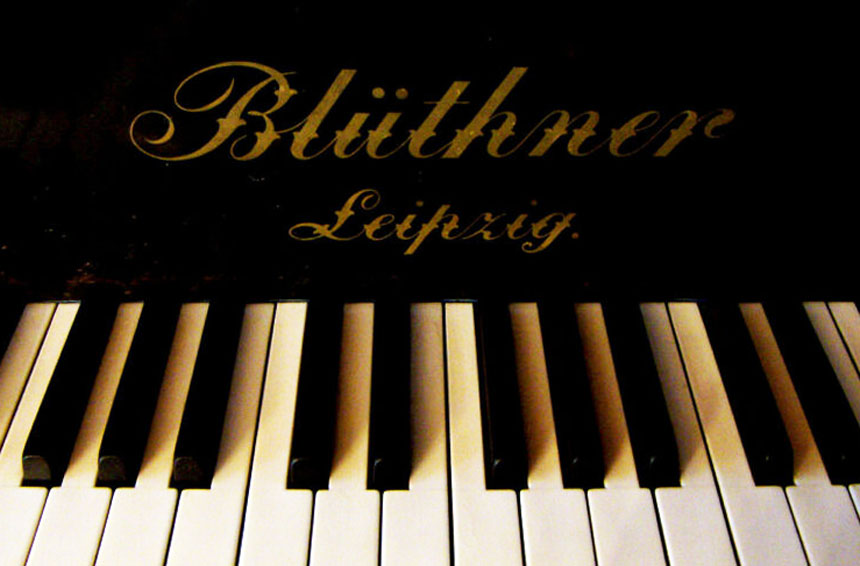Andras Schiff, Brahms and the Question of Tradition
Much attention and mention is given Sir Andras Schiff’s latest remarkable recording of both Brahms’ piano concertos with the Orchestra of the Age of Enlightenment. Schiff’s choice of instrument is a Blüthner grand piano built in Leipzig around 1859, the year in which the first D minor concerto was premiered. Schiff has changed foot in his views on period instruments and the recording can be seen as an ambitious attempt to scrutinize and fully bring out the true characteristics of Brahms’ works.

Several years ago, Schiff acquired an 1820 fortepiano, which was used to make recordings of two double albums with Schubert’s late piano works. Schiff says: ”Playing the Brahms concertos on a modern piano with modern orchestras, there were always balance problems. And I found, especially in the second B-flat Concerto, that it was just physically and psychologically very hard to play. Somehow, with this Blüthner piano, the physical difficulties disappear. The keys are a tiny bit narrower, so the stretches are not so tiring, and the action is much lighter. So there is not this colossal physical work involved.” In recent interviews, Schiff has criticised the increasing homogeneity of piano performance, with modern Steinways used for repertoire of every era.

In the album’s liner notes Schiff describes his aim of this ECM label New Series project: “To liberate it from the burden of the – often questionable – trademarks of performing tradition.”
The ambition has been to get back to the sound and scale of the performances that Brahms himself would have expected. Among Brahms’ favourite orchestras was Hans von Bülow’s band in Meiningen, which had just 49 players. Schiffs’ previous collaboration with the period instrument ensemble Orchestra of the Age of Enlightenment in the Schumann piano concerto in London, led to a natural choice of ensemble for this recording.
Listen to a sample from the album:

David Weininger in New York Times asked Schiff in which passages the use of these instruments allows the music to come across with unusual freshness, and Schiff replied:
“For example, in the first movement of the Second Concerto, the development section can sound, in modern performance, very muddy and not clear, because there is so much counterpoint there. I’m very pleased to hear all those details. But also, take the opening of the third movement, with the cello solo. If it’s played with these instruments, next to the cello solo you hear all the other lower strings: the cellos and violas, and then later the oboe and bassoon. I just hear these layers of sound instead of a general sauce.”
András Schiff on the many facets of Johannes Brahms
András Schiff on performance tradition and choice of instruments
”He has gone back to the original manuscripts to check details of his performances, discovering, for instance, that Brahms had attached a metronome marking to the first movement of the D minor concerto that is significantly slower than we usually hear today, but which was omitted from the printed editions. It’s a shock to begin with but Schiff makes it convincing, gradually building the tension through the movement as the sound of his Blüthner – with its much less overpowering lower register than we are used to hearing from modern Steinways – blends beautifully with the soft grained OAE strings, while in the slow movement, it’s the wonderfully mellow woodwind that come into their own.” – The Guardian
“Schiff’s whole point of doing it this way is to strip the music of all of its accumulated performance traditions, and what the Blüthner piano may lack in oomph is more than made up for by the mellow smoothness of its tone and the clarity of textures across the various registers of the instrument…This warmth is pleasingly complemented by the orchestral playing…I was really surprised by how much this recording changed the way I both heard and thought about these concertos.” – Presto Classical
Comments
Excellent commentary on Brahms and performances with the piano of his time. Thank you.
Amazing! Brahms can sound so thick and heavy but with this smaller orchestra and Schiff’s chosen instrument it’s suddenly so much easier to digest! Hats off to Schiff and to challenging performing traditions and the current Steinway homogenity, it’s clearly sorely needed!
Yulius Blötner wurde 1912 zum “Ehrenmitglied auf Lebenszeit der Direktion der Kiewer Kaiserlichen Russischen Musikgesellschaft” ernannt, gegründet von Anton Rubinstein
.
Schiff is the true rascal of the piano world. He is both reverent (of the music) and irreverent at the same time. I get the sense he has a real dirty sense of humor in private. Have you seen his Beethoven Sonata lectures? They’re on YouTube, and are both informative and with the occasional twinkle in the eye moments. Funny to see him so understated in the video interviews.
Having played on classic (very old) pianos as well as more modern ones, you can tell the difference right away. I would love to one day be able to afford one from another time, they just do not come cheap and it is understandable why!